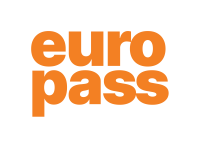
Multiple Intelligences for Deeper Learning
Participants will be introduced to the theory of multiple intelligences that allows educators to take into consideration different types of learners by reinforcing each of their types of intelligence, which allows tailoring the learning process to every student.
Description
The multiple intelligence theory can draw students back into learning. Using the different types of intelligence to teach a concept gives each of your diverse learners a chance to succeed at learning. Teaching a student strengths helps achieve success in learning. By applying the theory of multiple intelligences in the classroom, educators take into consideration the different types of learners they might have in their class, reinforce all types of intelligence in every student, and allow for an individual learning process. This course will help educators learn about the theory of Multiple Intelligences through guided self-exploration. You will do this through both formal and informal activities in an enjoyable and exciting program of activities that will allow you to:
- Explore them through experiences/activities in a reflective setting;
- Discover your multiple intelligences;
- Understand their impact on your practice;
- Identify competencies to develop;
- Choose the most suitable ways for you to develop them.
You will do this in an intercultural environment learning about yourself, sharing your practice with your peers from around Europe, and working out how to apply this learning when you return to your home country.
Learning objectives
The course will help the participants to:
- Develop an awareness of the role multiple intelligences plays in knowledge acquisition;
- Understand the difference between Multiple Intelligence and Learning Styles;
- Be better equipped with the tools necessary to identify the learning niche of each of the students/learners they serve;
- Have a better understanding of the concepts and strategies of the theory and application of Multiple Intelligences;
- Create a lesson plan incorporating this concept in a subject area of their choice;
- Take part in a peer learning environment and understand the importance of peer learning;
- Take part in an intercultural learning environment and understand the importance of intercultural learning;
- Recognize and teach a broader range of talents and skills;
- Present material in a style that engages most or all of the intelligence of their students/learners;
- Assess the learner's progress based on Multiple Intelligences.
--> Download all course info in PDF <--
Methodology & assessment
Certification details
Here's how we ensure your achievements are recognized and validated:
- Certificate of Attendance: Upon successful completion of your course, you will receive a Certificate of Attendance in line with Erasmus quality standards.
- Europass Mobility Certificate: If requested, you can also receive the Europass Mobility Certificate.
- Seamless Administration: We provide assistance and guidance to our participants throughout every step of the project: from the grant application to the final documents.
To make your participation accessible, our courses are designed to allow you to request 8 days of individual support for your subsistence costs. This includes 6 days for the course and an additional 2 days for travel.
Useful resources:
- Live Chat support: Monday-Friday | 8:30-22:30 CET
- FAQ
- Guides to Erasmus+
- OID Numbers and Fiscal Data
A 60 € late registration fee will be applied if you register less than 8 weeks before the course start date.
Pricing, packages and other information
-
Price:480Euro
Additional information
-
Language:English
-
Target audience ISCED:Primary education (ISCED 1)Lower secondary education (ISCED 2)Upper secondary education (ISCED 3)
-
Target audience type:TeacherHead Teacher / PrincipalTeacher Educator
-
Learning time:25 hours or more
Past sessions
More courses by this organiser

Student-Centered Classroom: Teachers as Promoters of Active Learning



